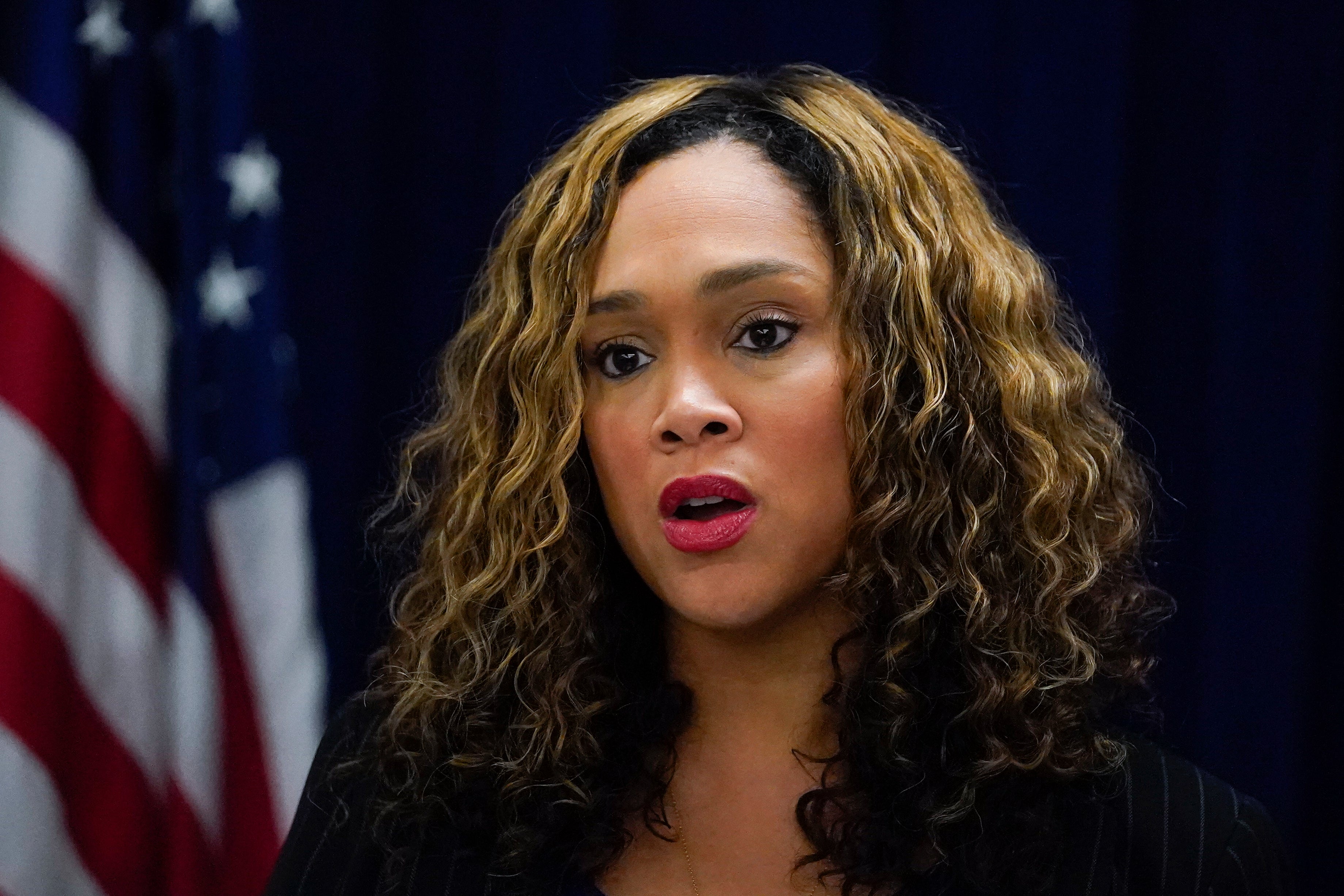Former top prosecutor for Baltimore convicted in perjury case tied to purchase of Florida homes
A former top prosecutor for the city of Baltimore has been convicted on Thursday of charges that she lied about the finances of a side business to improperly access retirement funds during the COVID-19 pandemic, using the money to buy two Florida homes

A former top prosecutor for the city of Baltimore was convicted on Thursday of charges that she lied about the finances of a side business to improperly access retirement funds during the COVID-19 pandemic, using the money to buy two Florida homes.
A federal jury convicted former Baltimore state's attorney Marilyn Mosby of two counts of perjury after a trial that started Monday.
Mosby served two terms as state’s attorney for Baltimore. A federal grand jury indicted her on perjury charges before a Democratic primary challenger defeated her last year.
Mosby gained a national profile for prosecuting Baltimore police officers after Freddie Gray, a Black man, died in police custody in 2015, which was Mosby’s first year in office. His death led to riots and protests in the city. None of the officers were convicted.
Mosby declined to testify before her attorneys rested their case on Wednesday.
In 2020, at the height of the pandemic, Mosby withdrew $90,000 from Baltimore city’s deferred compensation plan. She received her full salary, about $250,000 that year.
Mosby's 2022 indictment accused her of improperly accessing retirement funds by falsely claiming that the pandemic harmed a travel-oriented business that she had formed. She used the withdrawals as down payments to buy a home in Kissimmee, Florida, and a condominium in Long Boat Key, Florida.
Prosecutors argued that Mosby wasn’t entitled to access the funds under provisions of the Coronavirus Aid, Relief and Economic Security Act. They said her business, Mahogany Elite Enterprises, had no clients or revenue and didn't sustain any “adverse financial consequences” from the pandemic.
“This case is about a lawyer and a public servant who placed her own selfish interests above the truth,” Assistant U.S. Attorney Sean Delaney told jurors on Monday during the trial’s opening statements.
Mosby made separate withdrawals of $40,000 and $50,000 from the city retirement plan. Prosecutors say the money in the account is held in trust and belongs to the city until a plan participant is eligible to make a withdrawal.
One of Mosby's lawyers said she was legally entitled to withdraw the money and spend it however she wanted. Mosby told the truth when she certified on paperwork that the pandemic devastated her business, said federal public defender James Wyda.
During the trial's closing arguments, Wyda said Mosby spent time and money to start a business designed to help “women of color” in business to travel to retreats.
“You know the world stopped when the pandemic hit” in 2020, Wyda told jurors. “What company or business associated with the pandemic didn’t stop when the global pandemic hit?”
A. Scott Bolden, a lawyer who initially represented Mosby but later withdrew from the case, has described the charges as “bogus” and claimed the case is “rooted in personal, political and racial animus.”
During her tenure as state’s attorney, Mosby received national recognition for her progressive policies and became a lightning rod for criticism from those who thought she went too far. Among other high-profile decisions, Mosby stopped prosecuting certain low-level crimes, a practice her successor has reversed.
U.S. District Judge Lydia Kay Griggsby agreed to move Mosby’s trial from Baltimore to Greenbelt, Maryland, a suburb of Washington, D.C.
Mosby’s attorneys argued that she couldn’t get a fair trial in Baltimore after years of negative media coverage. Prosecutors opposed the venue change, saying Mosby had sought and encouraged coverage of the case.
___
Associated Press writer Lea Skene in Baltimore contributed to this report.
Bookmark popover
Removed from bookmarks